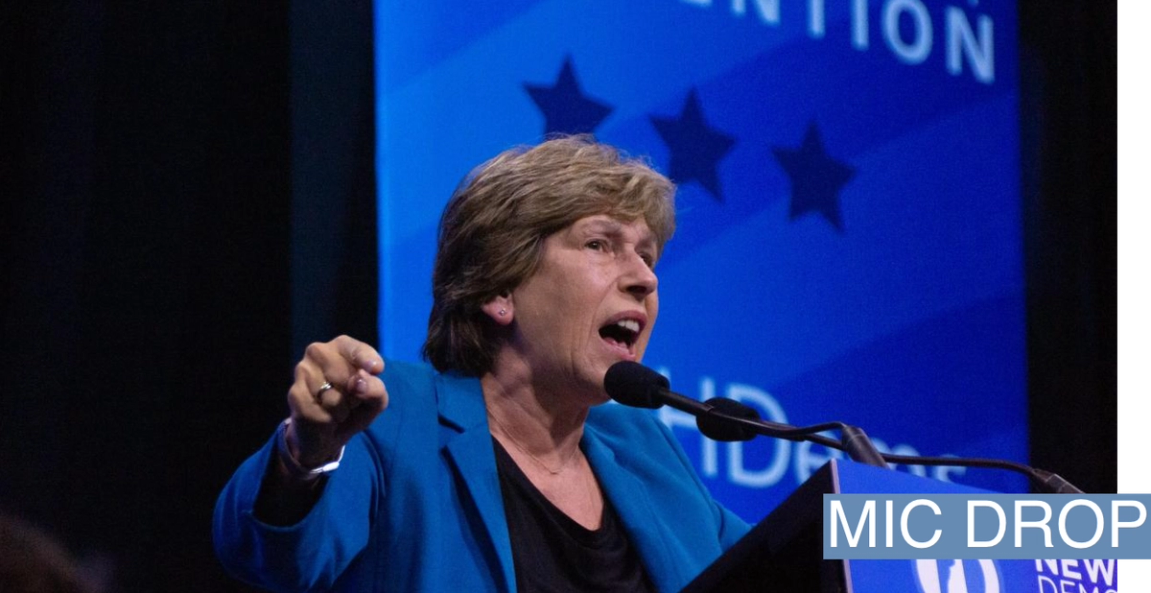 REUTERS/Octavio Jones REUTERS/Octavio JonesTHE NEWS Republicans who have spent the last two years wondering what happens if Donald Trump wins the 2024 nomination suddenly have another question on their mind as he begins to look more vulnerable: What happens if he loses? Trump’s loose attachments to the Republican Party are already raising speculation about a potential third party move, which could be devastating to the eventual nominee’s chances. On Sunday, ABC’s Jon Karl asked former Speaker of the House Paul Ryan about Republican fears that Trump “marches across the street and declares he’s an independent candidate” if he doesn’t win the nomination. It’s not an easy idea to dismiss. Trump first explored a run for president as a Reform Party candidate in 2000, and repeatedly refused to rule out a run outside the GOP if he lost the primaries during the 2016 cycle, claiming it gave him “a lot of leverage” over party leaders. Michael Short, who worked at the Republican National Committee at the time, likened it to a “hostage situation.” Michael Cohen, Trump’s former attorney and now a critic, told Semafor that Trump raised the prospect of leaving the GOP because he “wasn’t initially being taken seriously” by the party, which was under pressure to repudiate his campaign. “His threat to run as a third party candidate was to ensure people knew of his intent and that he would have no problem with destroying the party if they stood in his way,” he said. More recently, Trump reportedly told RNC Chair Ronna McDaniel that he would ditch the GOP to start a new party just as Republican leaders were weighing whether to convict him in his second impeachment trial (both Trump and McDaniel denied the claim). And while two sources close to Trump quickly dismissed speculation about a run outside the GOP — one person in Trump world said there was “quite literally nothing to” the claim while a source close to the former president’s campaign called it “an absurd idea” — one Trump administration veteran wouldn’t entirely rule it out. “I don’t see that happening right now,” the former official told Semafor. “But Trump was so successful in part because he ran against the elite and out of touch political establishment on both sides, so I’d say it’s not totally out of the realm of possibility.” MORGAN AND SHELBY’S VIEW Mounting a competitive third party or independent bid would be challenging for Trump, who has already declared his candidacy as a Republican. Roger Stone, who ran Trump’s 2000 effort, noted the Reform Party at the time had significant infrastructure, ballot access, and public funding after two runs by Ross Perot. Getting on the ballot now would be more expensive and logistically complicated and could run into “sore loser” laws. It would also “guarantee the election of a Democrat.” Tim Miller, a Trump critic who served as communications director for Jeb Bush’s campaign, said Republicans should take the threat less seriously than they did in 2016, because Trump’s legacy is more closely tied to the party now and “accommodating him has been a disaster by every conceivable measure” already. “Is he really going to end this run with a third place presidential blowout? I don’t think so,” he said. ROOM FOR DISAGREEMENT Even if Trump doesn’t leave the party, some Republicans argue he could do just as much damage by refusing to endorse the nominee if it’s someone other than himself, or by discouraging people from voting based on false claims of fraud. “I don’t know if he’s gonna be the nominee, but if he’s not the nominee, I don’t see him saying, ‘Oh, well, I didn’t win, but I’m gonna just get behind all these great candidates.’ He’s likely to be disruptive,” Larry Hogan, the Republican governor of Maryland, told Semafor. — Shelby Talcott and Morgan Chalfant Check out more of the story here. | 





